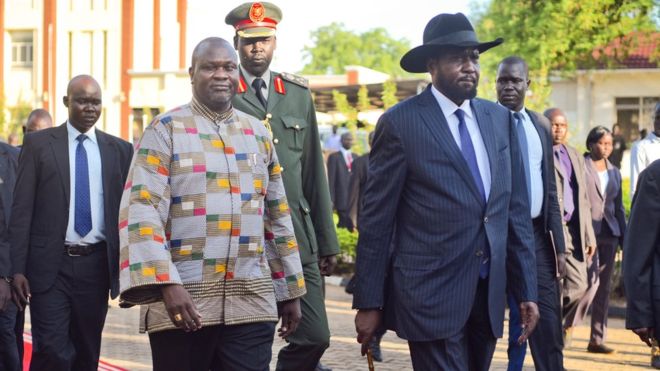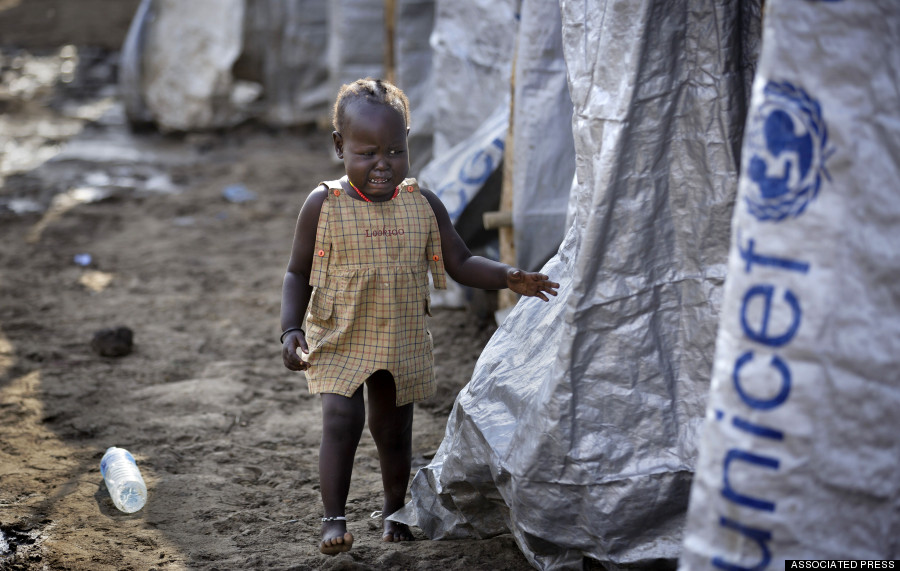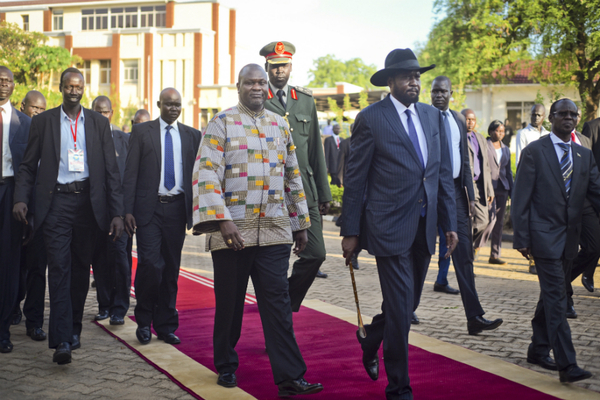JUBA (Reuters) – South Sudan President Salva Kiir replaced his vice president and rival Riek Machar on Monday, a move that could potentially undermine last year’s peace deal and reignite war in Africa’s youngest nation.
Machar was sworn in as first vice president only last April, eight months after a peace agreement that ended two years of fighting that broke out the last time that Kiir sacked him as his deputy in 2013.
But the rivalry between the two men led to violence in the capital Juba early this month as forces from both sides battled each other with tanks, helicopters and other heavy weapons.
Machar, from the minority Nuer ethnic group, left Juba with his troops, saying he would only return when an international body had to set up a buffer force between his fighters and those supporting Kiir, leader of the dominant Dinka group.
Kiir issued an ultimatum last week, saying Machar had 48 hours to contact him and return to Juba to salvage last year’s peace deal, or face replacement.
He made good on that threat on Monday when he issued a decree “for the appointment of the first vice president of the republic of South Sudan”, naming General Tabal Deng Gai to the post.
A former minister of mining, Deng Gai was a chief negotiator on behalf of Machar’s SPLM-IO group in the talks that led to last year’s deal. But last week, he broke ranks with Machar and backed Kiir’s ultimatum to him.

South Sudan’s politics has long been plagued by splits and rivalries as leaders switch allegiances in a struggle for power an influence in the oil-producing nation, which only emerged from Sudan five years ago.
Its last war, which started after Kiir sacked Machar as vice president in 2013, killed more than 10,000 people and displaced over 2 million, many of whom fled to neighbouring countries.
The most recent fighting in Juba has forced 26,000 people to flee to neighbouring Uganda, according to the United Nations refugee agency, UNHCR.
In a bid to prevent a return to full-scale war in the crude oil producer, the African Union and the Inter Governmental Authority of Development, an east African bloc, have backed the deployment of a regional force and also want the UN force UNMISS’s mandate changed to that of an intervention force.


